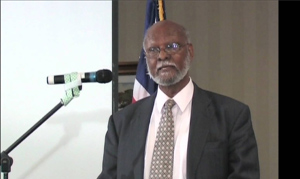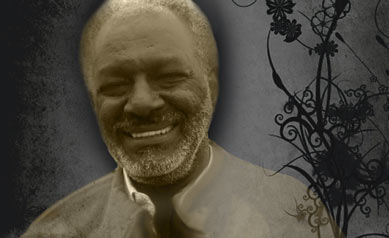He Doesn’t Hate you; He despises You

My mother was in her late teens when she came to our village as a young bride. She has an incredible memory and recalls events with great details. Over the years, that has given me the opportunity to develop intimate portraits of all the giants and dwarfs who made our village life truly idyllic—where small and simple was beautiful.
I was fortunate to be born in the village; it has rooted me in my authentic culture, where my kinsmen ran their affairs in their own terms, reconciled their conflicts, and dispensed justice with compassion and dignity. I was, however, equally unfortunate to be cut-off, at such an early age, from this Utopian-like communal life of interdependence. My biggest consolation is that I live cherishing the example of a noble woman, who has remained true to her roots and fiercely fought to bequeath its ancestral virtues on her children.
Whatever spiritual, social and cultural longing and hunger I had felt as a young man was lovingly nourished by the guidance of this virtuous woman, whom my children in the footsteps of their father, uncles and aunties, endearingly refer to as Adey. As I get older, I am increasingly becoming aware of the enormous role Adey has played in my growth as a man and in the way I view the world.
Adey loves to talk in parables and it is in these stories and the context in which she invokes them that her innate intelligence, wisdom and sagacity shine through. As a preface to my article, I like to start with one of Adey’s stories.
His honor says: She is guilty
After the death of her husband, a young widow and her only son fell on hard times. Although the community, through their cooperative enterprise, ploughed her farms and harvested her crops, it was an existence devoid of any comfort. Her immediate neighbor was blessed with much livestock and foodstuffs and the occasional generosity she experienced from them had proportionally blunted her envy. Nonetheless, she could neither suppress the inescapable awareness that life was unfair nor understand why much should be taken away from those who had little in the first place. Her constant musings on inequality, unfairness and the unceasing fight to make ends meet further exacerbated her craving for a luxury, but only a bit; she would hate to be the subject of other peoples’ envy or for the gate of heaven to be as narrow as the eye of a needle. (As I listen to the story, I often wonder why many people think the Gospel of human dignity, love and mutual respect is anti-prosperity.)
In those days, having a chicken for a meal was considered a luxury most of the people could not afford. Her young son, who had prematurely and through no fault of his, found out that he had to grow up and fill the void left by his father, was immediately crippled by his inability to be a provider. Inevitably, despondency overwhelmed him. One day, as he leaned in utter dejection on the neighbor’s fence, he saw one of their chickens laying eggs. Without any forethought, he whisked the eggs off the ground and scuttled towards home. With childlike excitement he handed his loot to his mother, who was only elated by the prospect of a decent meal, and didn’t bother to suspect any mischief or ask where or how he got them. Ill-gotten or not, they spared no effort to enjoy their relatively sumptuous feast.
The boy was proud of his achievement and had to do more of it. The wolf in his belly had to be fed and nothing is as addictive as crime. The first step in the life of crime is the hardest; repeatedly crossed it becomes the new normal. Leaning on the neighbor’s fence became a habit of the boy and whenever the chickens hatch, it was a date with luxury. Stealing eggs was no longer thrilling for the boy and had to find a way of making his mother even happier—he brought the chicken home. He had to push the envelope for the thrill of a crime is commensurate with the value of the object and the grandiosity of the scheme.
The neighbor had become aware of the dwindling supply of their eggs and was wondering what was wrong with her chickens. As she counted them, she discovered two of them were missing. She thought she would ask the widow if she has seen her chickens and went to her house. As she approached her residence, she could smell the aroma of a well simmered chicken stew. Immediately, she knew what had happened and as the custom dictated, she called for another neighbor to serve as a witness before summoning her alleged robber to court. The judge, Dagna, of the village was aboy Rusom. He was an honorable and wise man (his son, an EPLF veteran, is my god-father).
Per tradition, the plaintiff and defendant were allowed to speak. The defendant’s argument solely rested on ignorance—“I didn’t know where my son got the chickens and eggs.” The Judge summoned the boy to court and after a brief cross-examination found out what has truly transpired. In his verdict, Aboy Russom declared the boy innocent: first, he was a minor, who was wrongfully and through no fault of his own, robbed of parental guidance and, second, that his mother’s willful neglect was the main impetus for his crime. The mother was asked to make arrangements with her neighbor on how to pay back the value of what was stolen.
A wolf and a sheep.
When people in authority fail to do their part, crime thrives; it is their negligence that enables people to first commit small crimes that eventually morph into serious transgressions. Promoting moral righteousness is the best deterrence, but when crimes happen the most effective way is to nip them in their bud. Repeat offenders are the worst and most dangerous criminals.
People are born with the potential to be good and bad; a wolf and a sheep dwells in their belly and what the societal system chooses to feed them determines what kind of people they would become—a wolf or a sheep will rule over them. When authority is entrusted on unqualified people, Islam warns, is a sign of doomsday. The quality of leadership in any society is a good indication of its health.
It is the Revolution stupid— not the National Liberation
Unlike the ELF, which started as a national liberation front and slowly and gradually negotiated a not so “revolutionary” garb, the EPLF was, from the onset, a truly revolutionary one and the young, radical and idealist Isaias Afwerki was at its front and center. To the EPLF, the liberation of Eritrea was an essential and a just goal, and yet, a means to grandeur experiment of overhauling the society. The EPLF spoke in terms of progress because in its omnipotence it knew what the final destination was—Eden on Eritrea. Towards this, people were generally divided into two categories: the progressives and the reactionaries: gesgesti adHarHarti.
Leftist revolutions hate history, traditions, religions and family values. They consider them reactionary forces that must be eradicated. All mass movements that lean left from center suffer from the original sin—they are vultures of individual rights and freedom. The farther left the movement, the more dangerous it becomes; the more it chants equality the less freedom it provides.
Religiofication is an essential component of leftist revolutions—people serve the cause, ideas and organizations and not vice-versa. Man was made for the Sabbath and not the Sabbath for man.
The loyalty of EPLF fighters was primarily to the front and not to their comrades for the latter requires individualism. The EPLF demands from its followers: “if any man come to it and hate not his father and mother and wife and children, and brethren and sisters, yea, and his own life also, he cannot be an EPLF tegadalay.” In the words of an EPLF popular 70’s song that encapsulates the spirit de corps: ‘eddl aleni gnbar aleni ab hzbawi gnbar zeselefeni. How fortunate I am to be a member of the EPLF.
Unlike most religions the EPLF lacked the Golden Rule to temper its excesses and extremities. For the leftist organizations such as the EPLF the Bronze Rule is that anything will do if it is either perceived to promote the goal of the organization or does not hamper its growth. All competing forces must be squashed and the end-result is always totalitarianism—they have to control everything. It is important to them that all traditional virtues are profaned; so much so that asking the where-about and well being of a missing loved-one is regarded as treason of the highest kind.
The singular commitment to the cause made the EPLF the best guerrilla organization the world has ever seen. Organizationally the EPLF was as impressive as the Nazis’ blitzkrieg, but also equally abhorrent. It was the embodiment of the beauty and the beast and our goal should be to save the beauty and slay the beast.
Understanding why the EPLF Tegadelti did not have any qualms to liquidate their own comrades, former classmates, and childhood friends is to understand what will be the best approach to effect change in Higdefite Eritrea. It was the system that fed the wolf in their bellies and it is the system that is our enemy. The overwhelming majority of the people serving the regime are decent Eritreans that we need to win over into our side; they are our natural allies in the struggle for change. The repeat offenders are the most dangerous elements and their determination to hang on to power must not be underestimated. He who rides a tiger is afraid to dismount.
Isaias does not hate you; he despises you
Isaias was just the first among equals; whatever has happened in the EPLF was the responsibility of the collective leadership. It cannot be denied that he was a brilliant man who won the respect and fear of his comrades through sheer dedication, commitment, steadfastness, ruthlessness and chicanery. As the principal leader of the organization, he deserves the lion’s share of the credit as well as the blame.
Isaias loved Eritrea; he dedicated his life to its struggle, but over the years, he came to love more his idea of Eritrea more than Eritrea itself. This love has totally blinded him and made him immune to alternative visions of Eritrea. The idea of Hadas Ertra was a collective vision, but Isaias had played a major role in its midwifery. This strong attachment has induced a fanatic zeal on him; always vigilant against those “bad” elements who might derail its progress.
When Isaias, the chairman of the secret party, made it possible for the EPLF to take some draconian measures against dissidents, there was none in the leadership who uttered words of condemnation. In fact, most of the information I have access to indicates that they had cheered for the decision, or even worse, they rationalized it on the proverbial megogo owner, who let the rat go so as not to break the mogogo.
The culture of rationalization and the fetish with timeliness (gzi’u aykonen/twgaH imo) are the twin maladies that have severely curtailed us from taking action and stifled our intellectual creativity. Getting rid of these two or tempering them with some level-headedness is a big part of bringing in positive changes.
Isaias evolved into what he is because there was no meaningful voice to check and balance him. In his mind the greatness of the EPLF was his; and as a true believer he could not give up on the aims of the revolution even when the prevailing conditions in post-independent Eritrea were not conducive. His comrades who evolved with time were seen as apostates who betrayed the cause, and genuinely he saw them as defeatists, fifth-column and collaborators with foreign enemies. What is even more, they were, through their acquiescence, the enablers who put him on his road to perdition. They knew full-well what the punishment for transgression was, but they were not brave enough to pull the trigger and relieve him of the burden of the revolution. He despises them, but even more, he despises the Eritrean people who have not, in any meaningful way, stood up to him to defend their honor and dignity.
Young Isaias was a bully but his playground was limited to Geza-kenisha; now he has the whole country under his control. By now we should know what to do with a bully—stand up to him, and the house of cards he has built will come crumbling down.
To contact the author: weriz@yahoo.com



Awate Forum